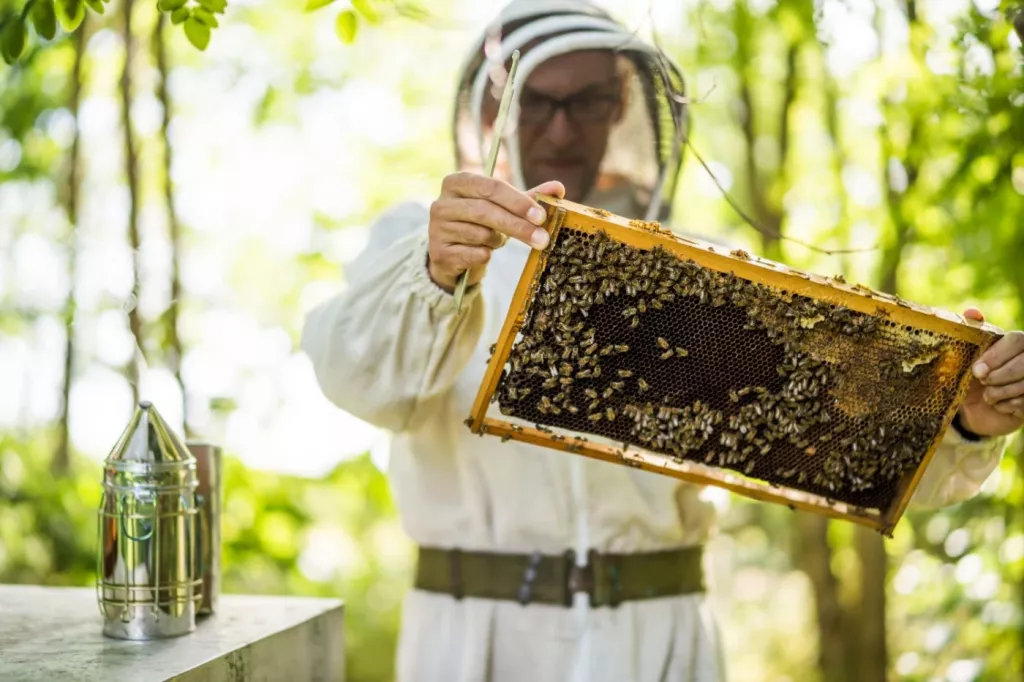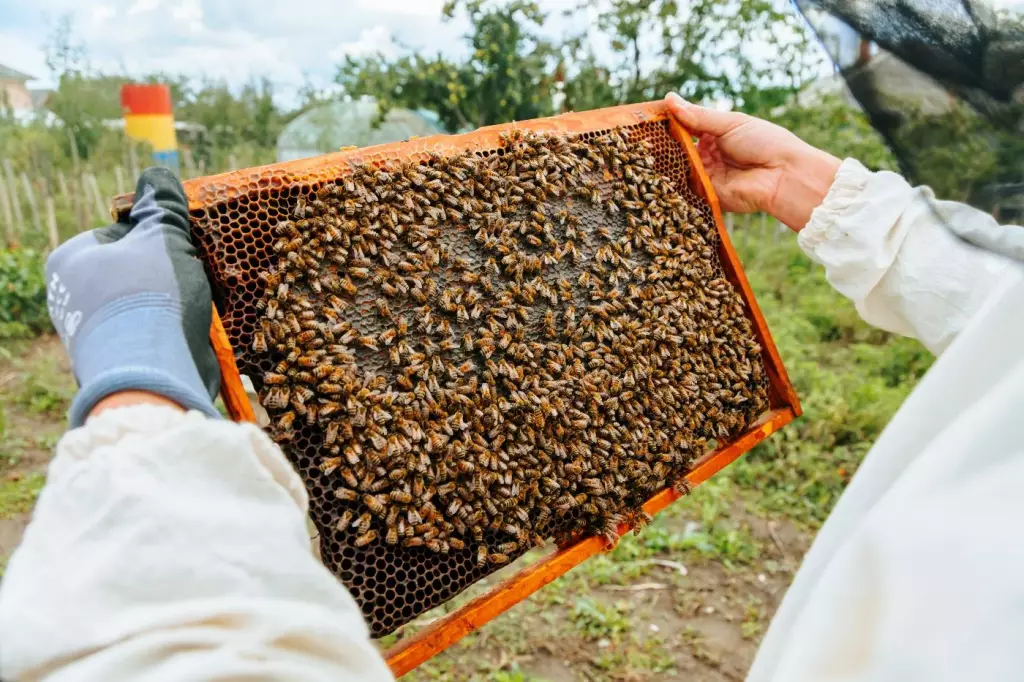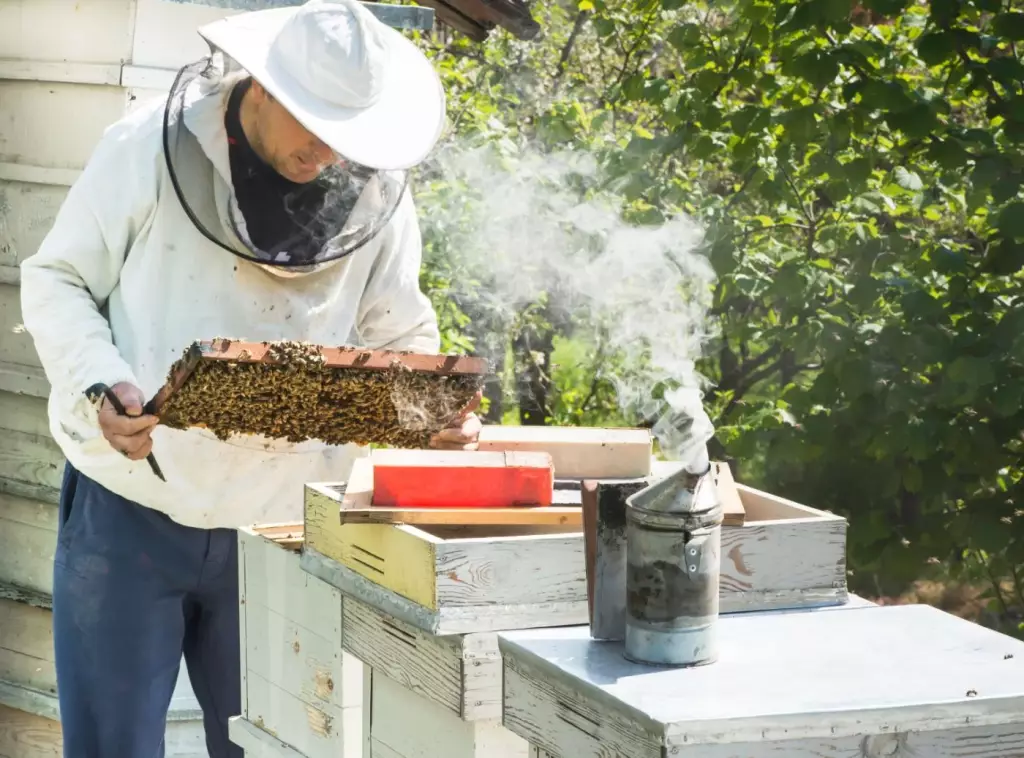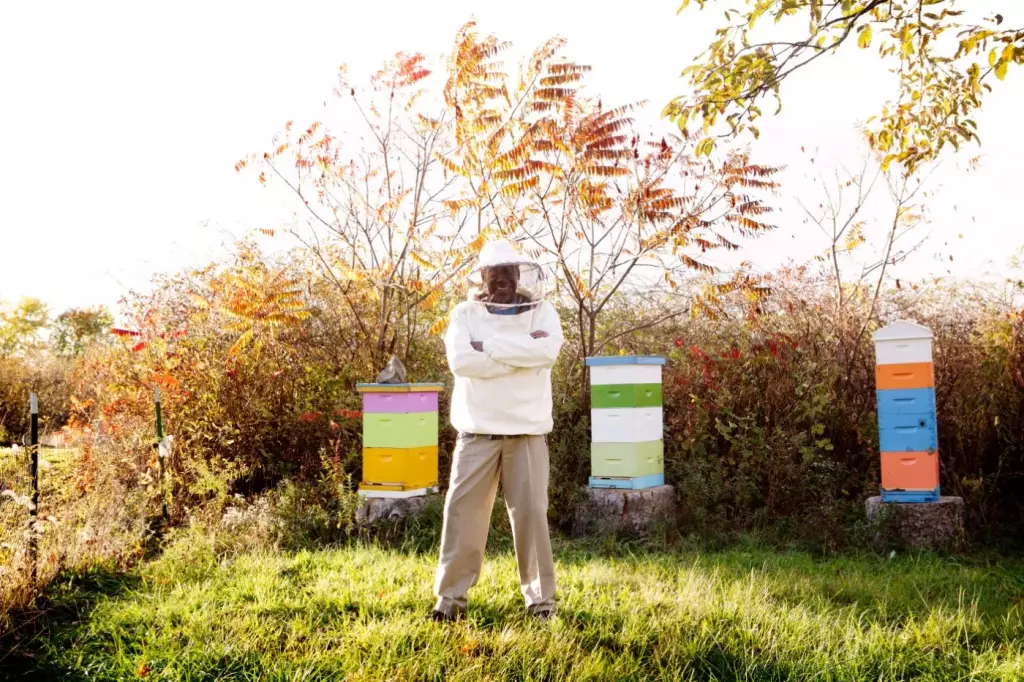Is Beekeeping Good or Bad For the Environment? (Actually, Both)
While many people consider beekeeping natural, not a lot of people know that it is considered a form of farming. However, is it a practice that is beneficial to the environment, or does it cause more damage?
Beekeeping can be a great way to help support the environment — or it can cause damage if done improperly. Beekeeping provides essential pollination services and helps promote biodiversity. But due to irresponsible practices in some cases, beekeeping can have serious negative impacts on the environment as well.
At its core, beekeeping is an essential tool for maintaining a healthy ecosystem. Yet many are still uncertain if beekeeping is a safe and environmentally-friendly practice. Here's our take on how beekeeping can be good—and bad—for the environment.
Summary
- Beekeeping helps promote biodiversity by providing pollination for plants and flowers.
- When poor hive management and the use of toxins on bees occur, beekeeping can have negative consequences.
- Overharvesting can be bad for the bees and the environment in general.
- You can keep beekeeping eco-friendly by learning about it, and carefully monitoring your bees and not using any chemicals in your hives.
- If done right, beekeeping can help increase the population of honey bees and other native species.

On this page:
How Does Beekeeping Affect the Environment?
There are several ways that beekeeping can affect the environment, depending on which factors are taken into consideration, such as the type of bees kept, the size of the hive, and how it is managed.
Many are still uncertain if beekeeping is a safe and environmentally friendly practice. Without enough basis to conclude, it is best to consider both the positive and negative effects.
Positive effects of beekeeping
- Beekeeping has been credited with providing numerous environmental benefits, such as:
- Increasing pollination of plants and flowers helps with biodiversity.
- Producing honey, beeswax, and other bee products used in natural healing and cosmetics.
- Helping protect crops from pests by guarding them against predation.
- Decreasing the use of pesticides, which can be harmful to wildlife and humans.
Negative effects of beekeeping
Unfortunately, there are also some negative aspects to beekeeping that can have a negative impact on the environment.
- Poor hive management can lead to excessive swarming, which could result in colonies being destroyed.
- Beekeepers may use toxins to control pests or weeds, which can contaminate the environment.
- Over-harvesting of honey can result in a decrease in bee populations.
- The use of antibiotics and other chemicals to treat or prevent diseases may have unintended consequences.
These are only some of the ways in which beekeeping can affect the environment. It is important to be aware of these potential negative impacts and take steps to minimize them.

Ultimately, beekeeping can be both beneficial and damaging to the environment; it all depends on how it is managed. With that in mind, it's important to ensure that beekeeping is done responsibly and safely to minimize any potential harm.
Is Beekeeping Good For the Environment?
Bees are a critical link in the cycle of life. They are the primary pollinators of most flowering plants, which makes them essential for crop production and diverse food sources. As such, their importance in maintaining a healthy ecosystem cannot be understated.
Honeybees pollinate plants and flowers they come in contact with, helping ensure that the plants and flowers can reproduce. This helps with biodiversity, as different species of plants and animals rely on this process to survive.
On the other hand, wild bees work to keep pests in check, which helps protect crops from predation. Keeping these populations low, also helps reduce the need for pesticides and other harmful chemicals.
All in all, both honeybees and wild bees are incredibly important for our environment, and beekeeping can be a great way to help support them. Without bees in the environment, our planet would be a much different place.
What Will Happen If We Stop Beekeeping
If beekeeping were to suddenly stop, it could have a drastic impact on our environment. Without honeybees and wild bees, plants and flowers would struggle to reproduce, with devastating consequences for biodiversity.
It would also lead to an increase in pests, which may require the use of pesticides and other chemicals. This can have a number of negative effects on wildlife and humans, such as damage to ecosystems and contamination of drinking water sources.
In addition, without beekeeping, the production of honey and other bee products would stop. This could lead to a decrease in the use of natural healing and cosmetics, as well as fewer jobs for beekeepers. This will cause an overall decline in production, goods, and services.
From this, it is clear that if beekeeping were to stop, the effects could be devastating, so it is important to do whatever we can to protect and support beekeeping.
By taking steps such as responsible hive management, avoiding the use of toxic chemicals, and educating ourselves on beekeeping best practices, we can ensure that beekeeping continues to be a positive force for the environment. This will help create a healthier, more sustainable world for everyone.

How Do You Keep Beekeeping Eco-Friendly?
It is essential that beekeepers take steps to ensure the practice of beekeeping remains eco-friendly. Here are a few tips on how to do this:
Be knowledgeable about bee behavior and beekeeping best practices.
Before getting bees, ensure you are up-to-date on the laws and regulations in your area. This can help ensure safe and responsible beekeeping. Each beekeeper has different practices, and knowing what is allowed in your area can help avoid any issues.
Do your best to monitor the health of your bees and their habitat.
This can help prevent the spread of disease and parasites. When harvesting honey, make sure to leave enough for the bees to feed on during the winter months. There are times when it's okay to have a larger harvest, but ensure this is done responsibly and with the bees' health in mind.
Using sustainable materials and practices, such as biodegradable packaging, when harvesting honey.
Seek out organic, natural treatments for diseases and pests. Just like us, bees are vulnerable to illnesses, so it’s important to use natural treatments when possible. It's never okay to use insecticides, as this can be harmful to the bees and the environment.
Practice good hive management to prevent swarming and excessive harvesting of honey.
Before starting beekeeping, make sure you have a good understanding of how to manage hives effectively. This will help ensure the bees remain healthy and productive. It's not always for our personal benefit, yet, making sure that your bees are happy and healthy is beneficial for both the environment and your practice.
By taking the necessary steps, we can ensure that beekeeping continues to be an effective way of supporting a healthy environment. With the right knowledge and practices, beekeepers can help ensure that their beekeeping is sustainable and eco-friendly.

Why Are Beekeepers Essential?
Beekeepers are essential contributors to our planet, providing essential pollination services and helping promote biodiversity. Their efforts help keep the environment healthy and help ensure our food sources continue to be available. Beekeepers also contribute to the economy, creating jobs and providing income for many people in the community.
Without beekeepers, the environment would suffer from a lack of pollination, leading to an overall decrease in biodiversity. Bees are an integral part of the planet's ecosystem, and beekeepers help to make sure that their populations remain healthy.
No matter what side of the debate you are on, it is clear that beekeeping can have a major impact on the environment. By understanding both the positive and negative effects, we can better assess whether beekeeping is a viable option for our environment.
It is important to remember that, with the right management practices, beekeeping can be a beneficial and sustainable practice. We must all take responsibility to ensure that beekeeping is carried out in a responsible manner, so we can continue to reap the benefits of this essential practice.